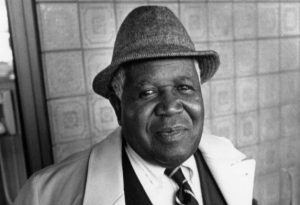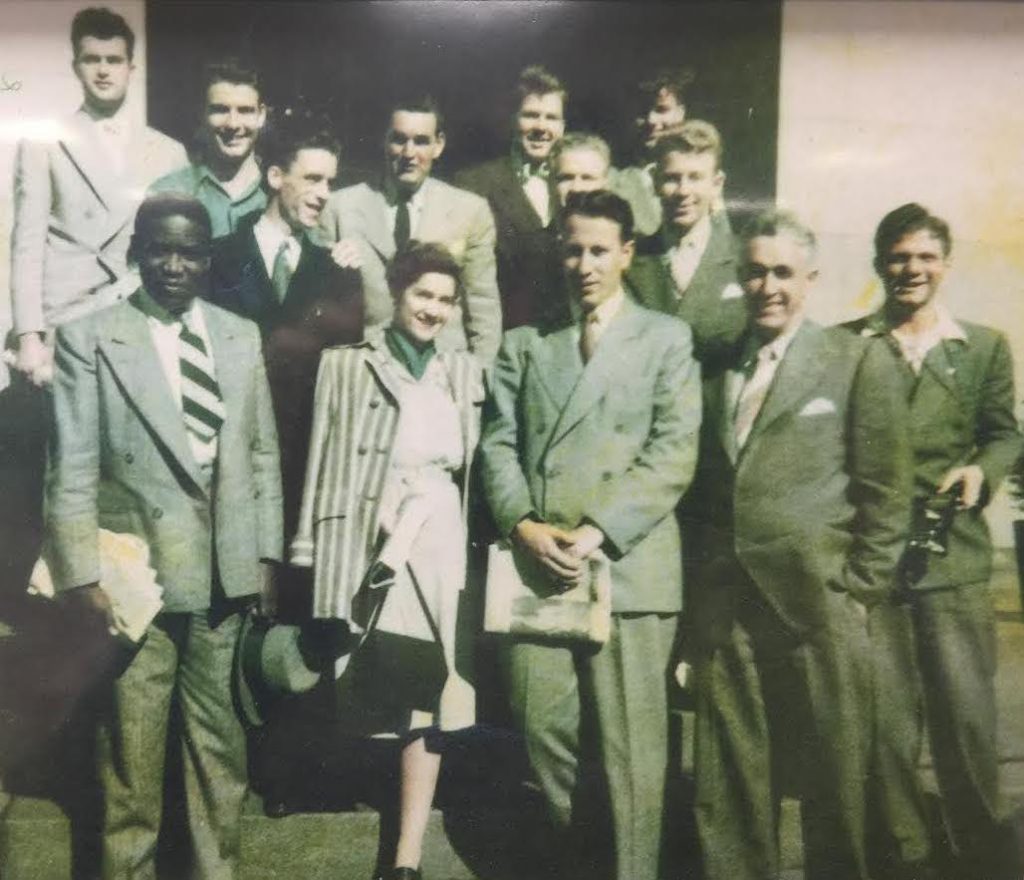Thomas Courtney Fleming, Coro Fellows Program inaugural class of 1947, was a groundbreaking leader in every sense of the word.
Born in Florida in 1907, he moved to Chico, California in 1919, going on to study journalism at Chico State College — he would eventually make his name as one of the most dynamic and prolific journalists on the West Coast. In the 1940s he began writing and editing for the Reporter (later the Sun-Reporter), an influential Black newspaper that arose from the wartime migration of African Americans into the Bay Area.

World War II took him overseas with the U.S. Army. In 1947, he joined the first class of Coro Fellows in San Francisco — the class was composed of twelve WWII veterans, financed by the G.I. Bill. The cohort rose to the challenge of the intensive, experiential nine-month training: “[The veterans] fit the Coro approach, and they got the internship program off to a great start, rooted in questioning and experience and tolerance for risk.” (Source: Coro: Creations, Concepts, and Contributions, David Sibbet, Ed.). As a Coro Fellow, Fleming worked as an intern in the office of future California Governor Edmund G. “Pat” Brown while continuing his journalism work.
Coro’s founders hypothesized that long-term, enduring change in society arises from deep changes in individuals. “They set out to attract and train talented individuals and to trust that those people would create positive change wherever they chose to spend their efforts.” (Source: Ibid.).
This certainly proved true in Fleming’s case. Over the course of a groundbreaking, 61-year career as a reporter and editor, he covered our most urgent and important stories: civil rights struggles, labor issues, student strikes, police brutality, and urban renewal just a few among them. He covered numerous national political conventions and met leading intellectuals and celebrities, including Langston Hughes, Jackie Robinson, Duke Ellington, Paul Robeson, Malcolm X, Thurgood Marshall, and Dr. Martin Luther King, Jr.
In an interview later in his life, he recalled, “I covered all beats here… and I became well acquainted with all the members of the press. … Newspapermen, most of them, always seemed so well informed about what was going on around them. And I wanted to be well informed too. … So I think that [drew me to journalism] more than anything else, just a curious mind … I like to read about what people are doing and why did they do it.” (Source: www.thehistorymakers.org).
For more than 60 years, his curiosity and interest in the world around him helped shape the political, social, and cultural life of the Bay Area.
Fleming’s leadership was instrumental in shaping the Sun-Reporter’s significant influence on our region’s civic fabric, making key, coveted political endorsements and paving the way for generations of Black journalists. On his 90th birthday, the California State Assembly honored him as the Bay Area’s “oldest, longest-running continuously active journalist.”
Fleming continued writing columns for the Sun-Reporter until 2005 and passed away in 2006, at age 99. His memorial service was held at San Francisco City Hall.
We honor Thomas Fleming’s memory and celebrate his legacy. He left an indelible impact on the Bay Area.
Interested in learning more about Thomas Fleming’s life and career? Check out these resources:
- African American Museum and Library at Oakland: Thomas Fleming Papers
- San Francisco Chronicle: A Titan of Bay Area Newspapers
- San Francisco Bayview
- San Francisco Public Library: 1998 Interview with Thomas Fleming
- The History Makers: Thomas Fleming Biography
- Wikipedia: Thomas C. Fleming
- San Francisco Chronicle: Thomas Fleming Obituary

Above, a photo of the inaugural Fellows Program Class of 1947. Visit our program page to learn more about the Coro Fellows Program in Public Affairs.